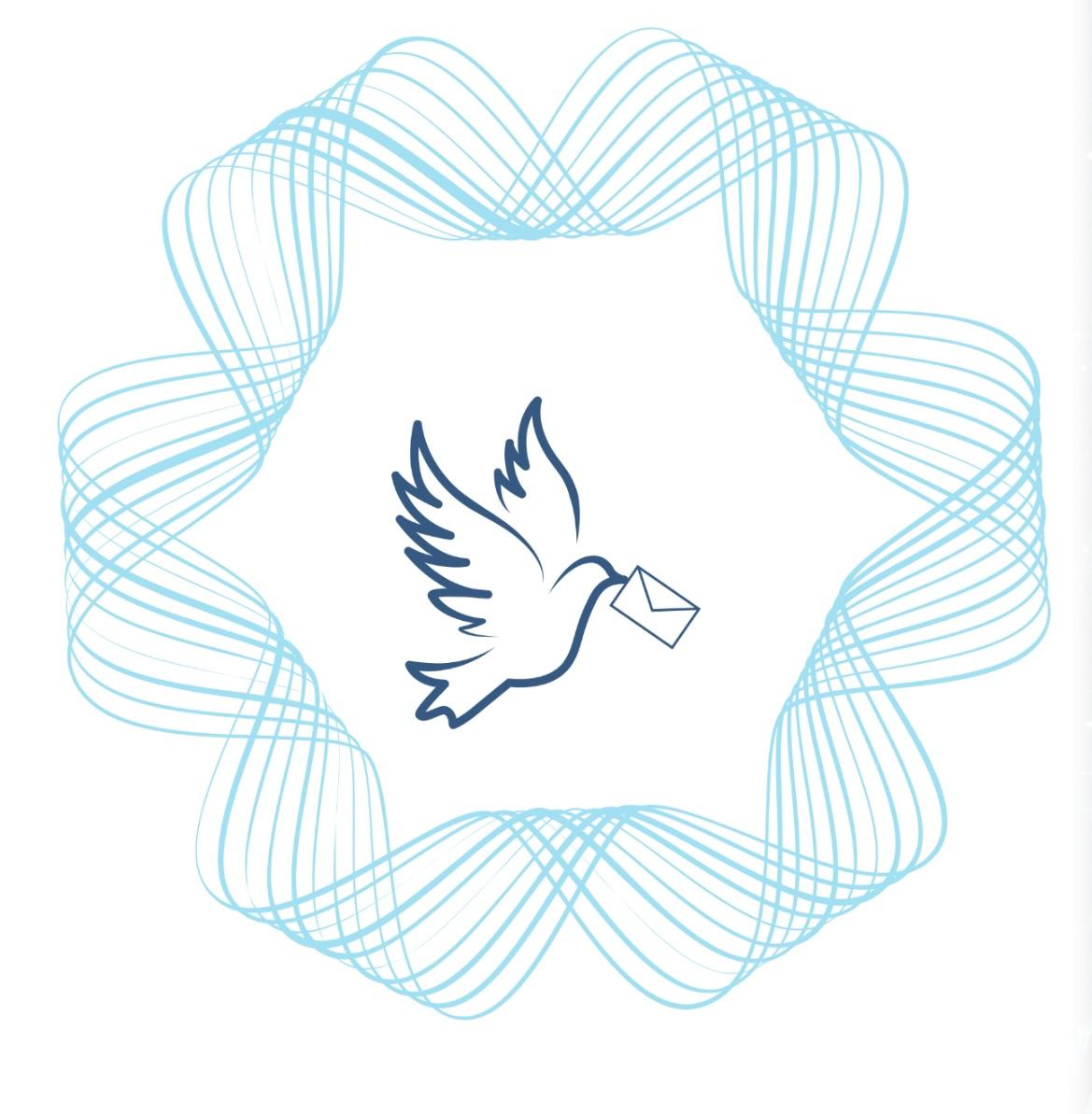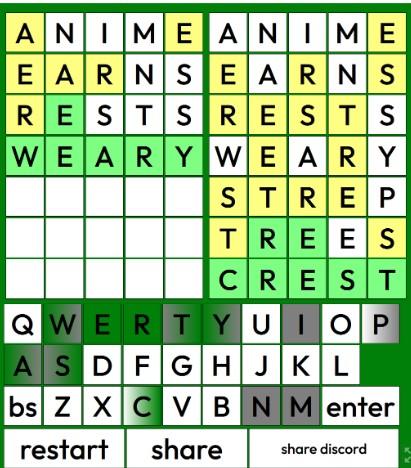Similar to Wordle, the first word has significant relevance in this context as well. Significant dual relevance, indeed. It not only facilitates info extraction from voids but also advances your decision-making about your initial choice of side.
Select a beginning word with the highest number of vowels, such as ADIEU, ABOUT, EQUAL, OUIJA, AUDIO, or LOUIE. In the event of failure, if you find yourself cornered, gazing at the bottom of Dordle’s grid with just 2-3 attempts remaining, you may remain composed, since there exists a method to substantially refine your word search without overtly cheating (which we would not condone, would we?).
Conversely, one may choose to initiate words with five unique letters, namely the most statistically prevalent letters in five-letter words, such as S, E, A, O, R, I, L, T, N, and U. Examples are ROATE, RAISE, and ULTRA. The large grid of Dordle, exceeding twice the dimensions of Wordle's grid, may easily induce feelings of overwhelm. Nevertheless, upon careful consideration, the optimal strategy for engaging with Dordle’s dual-grid method is to concentrate your efforts on deducing one word as swiftly as possible, ideally within 3 to 4 attempts. Exceeding that threshold invites panic prior to exhausting your attempts.
The challenge is in determining the appropriate moment to transition to the word you ought to conjecture. It is necessary to make the first 1-2 attempts against the wall in order to maximize data acquisition. Determine whether side (left or right) has disclosed the most information. Select a position and adhere to it till completion.
Submit this word immediately upon your conjecture and begin guessing the second word. This is to ensure that you save the last effort for solving the second grid, since addressing both simultaneously is currently unfeasible.

